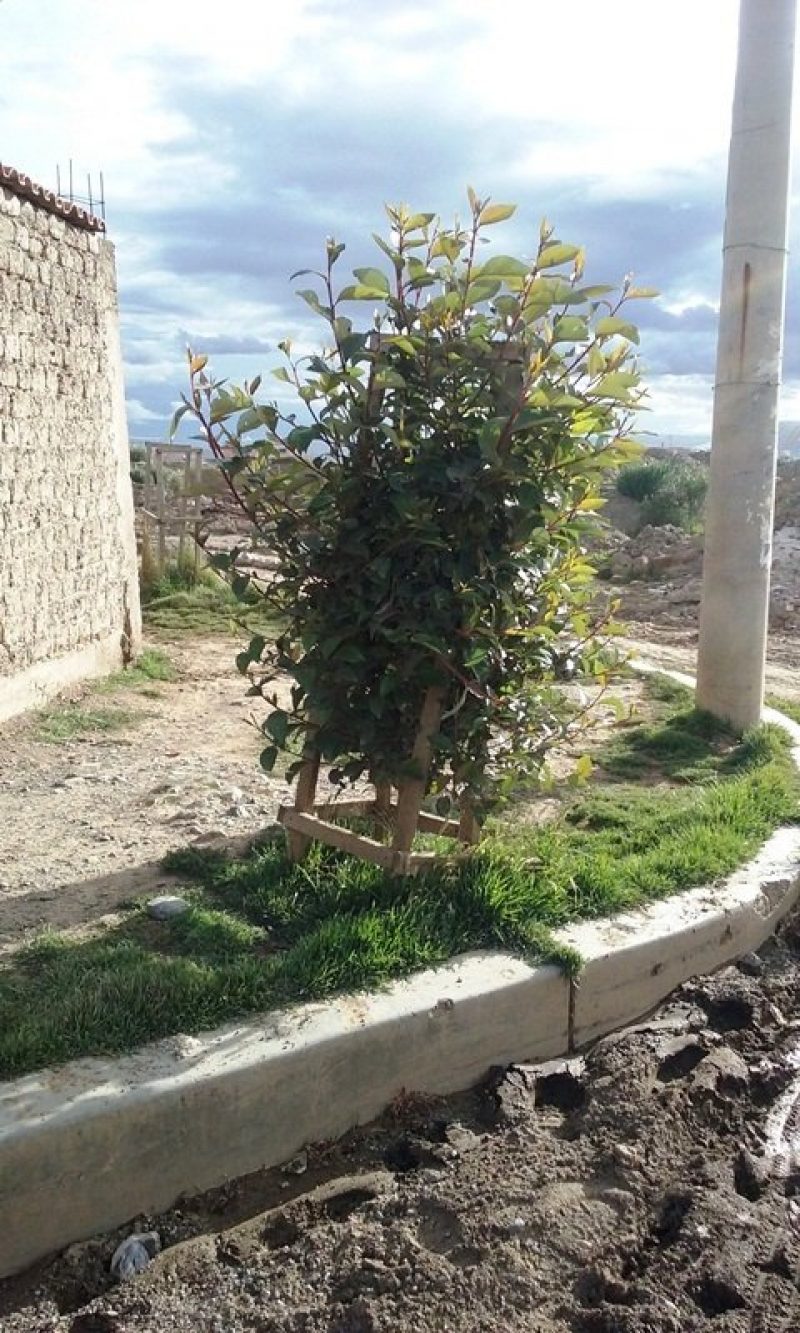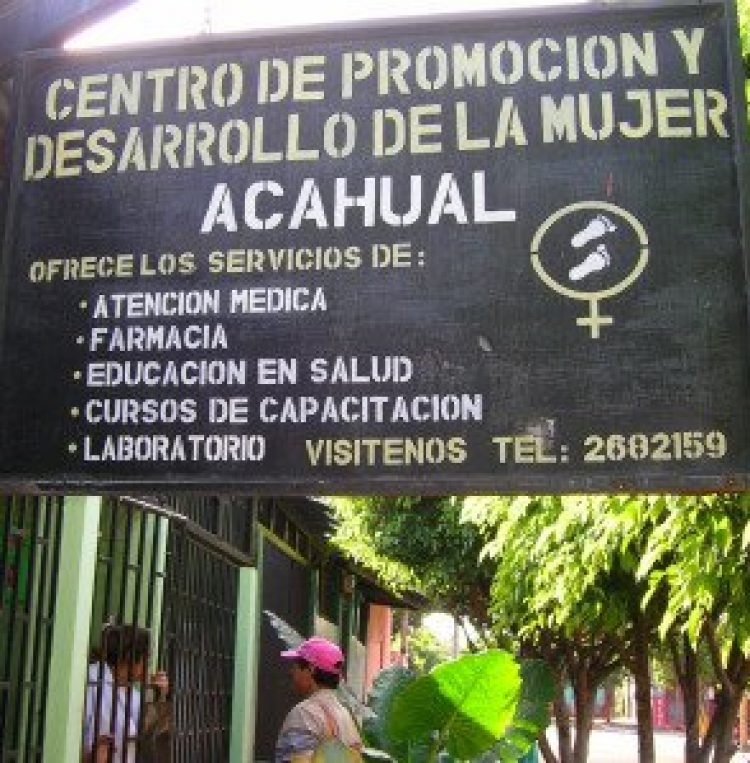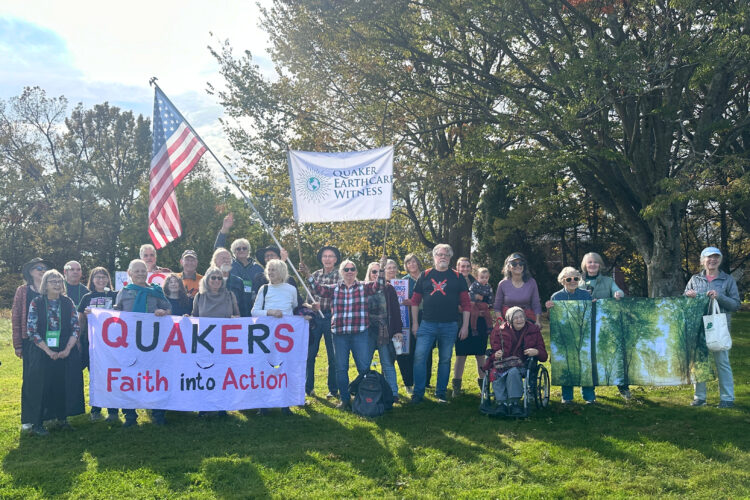Mini-Grants in Bolivia and Nicaragua

Mini Grants in Bolivia
By Mary Gilbert
TREES IN THE ALTIPLANO
The city of El Alto in Bolivia sits at an elevation of 13,600 feet. Specific native trees can actually grow at that altitude in Bolivia. Ruben Hilare—inspired by what he learned at a UN meeting in Cancun that he attended with members of the QEW UN Working Group—and other young Quakers decided that trees should grow in El Alto. The government of Bolivia is aware of the value of nature and supplied trees at no cost. The Friends had to plant the trees and water them; they set up a rotating system that brought buckets of water to the saplings and build shelters around the trees for protection from winter winds for the first couple of years. The QEW mini-grant helped fund shelter materials and tools.
I ran into Ruben at the FWCC conference in Peru this January. He told me that many of the trees planted have survived and sent me pictures of the trees in leaf. His church is very proud of the trees, and there’s a bonus. Ruben wrote, “The impact of the project was that many families, including the local government have been concerned about the needs of having trees in El Alto. The Quaker church was the first institution planting these trees, and after that many people added more trees on the streets.”
PACHAMAMA IN PRACTICE
Emma Condori, who spent a year at Earlham School of Religion, has formed a small committee that includes Friends. They are establishing a Friends International Bilingual Center in La Paz as a site for outreach that will serve people’s needs. Emma says that often people want to have a meeting or workshop and cannot find a place willing to let them use the space. Now they will have one. There is a kitchen where simple meals can be prepared. Emma is planning workshops, including one for women based on the QEW Population tri-fold she translated into Spanish.
A QEW mini-grant is helping with a children’s earthcare program that is part of this larger project. Children from La Paz and El Alto will come for a full day or a half day twice a month for 4 -6 months. The idea is to have the children take action, not just hear about things. Emma says they will “hear, see and work.” Examples of what’s planned:
- Travel to a beautiful place for an encounter with nature, and then come back and talk about how important nature is for each of us.
- Bring concerns from their own families, such as problems their grandparents in the countryside might be having with crops.
- Start a recycling project. Recycled paper can be sold by the kilo.
- Work with recycled fabric.
The program will also teach children what is happening beyond Bolivia. They plan to record news stories to discuss; for example, Emma feels drought, floods, and disasters such as typhoon Haiyan are climate-related stories the children should learn about. The program will finish with a celebration, and the intention is to involve parents so that they will be able to promote the same kind of program for next year.
QEW Mini-Grants and ProNica
By Brad Stocker.
Above, you learned what QEW Mini-Grants are, but you may be less familiar with ProNica. ProNica is a Quaker-founded NGO that currently works in solidarity with nine Nicaraguan projects. The organization began under the guidance of Southeastern Yearly Meeting (SEYM) in 1987, and later evolved into an autonomous NGO. It is still a Quaker organization: six of the seven board members are Friends, and all involved are expected to hold Quaker values. ProNica is funded primarily with donations from SEYM, individuals, and from Friends Witness Tours and other service tours from educational institutions.
ProNica has no projects of its own; rather, it forms solidarity with those in the country who have work and need support. ProNica follows along the lines of Eduardo Galeano’s ideas:
“I don’t believe in charity. I believe in solidarity. Charity is so vertical. It goes from the top to the bottom. Solidarity is horizontal. It respects the other person. I have a lot to learn from other people.”
Or, as shared by one Friend on the QEW discussion listserv:
“If you have come to help me, you are are wasting your time. But if you have come because your liberation is bound up with mine, then let us work together.” Lila Watson, Aboriginal woman of Australia.
Recently, QEW and ProNica have found two projects that overlap in mission and vision. One was the inventory of the flora and fauna within the planned route of the Nicaraguan Transoceanic Canal (which is thankfully now on hold), which was supported by both a QEW Mini-Grant and ProNica. The second is the current project with the Acahualt Women’s Center.
The Acahualt Women’s Center had excellent family planning materials, produced in Spanish, but they did not have the funds to reprint and distribute them. As the QEW Population group will tell you, population growth is a concern and focus for reducing impact on Earth and family planning is one path to alleviation. Their materials were vetted by several people in QEW and found to be rich and accurate.
With the help of ProNica and one of its board members, the Acahualt Women’s Center and ProNica put together a project proposal to reprint the materials, distribute them, and have a short workshop for their people on how best to use them. The QEW Mini-Grants committee found it well within its parameters and funded the project for $500.
ProNica provided the matching requirement for the QEW Mini-Grant and has posted the information in its newsletter and on its website. ProNica makes a specific appeal for donors to give to the project and thus double the money, via the grant, in much the same manner that public radio fundraising campaigns do.
Individuals who wish to help with this fundraising specifically for the Acahualt Women’s Clinic Family Planning Project, can do so on the ProNica site (http://pronica.org/donate). Also please feel free to share this with others as you feel so led.


